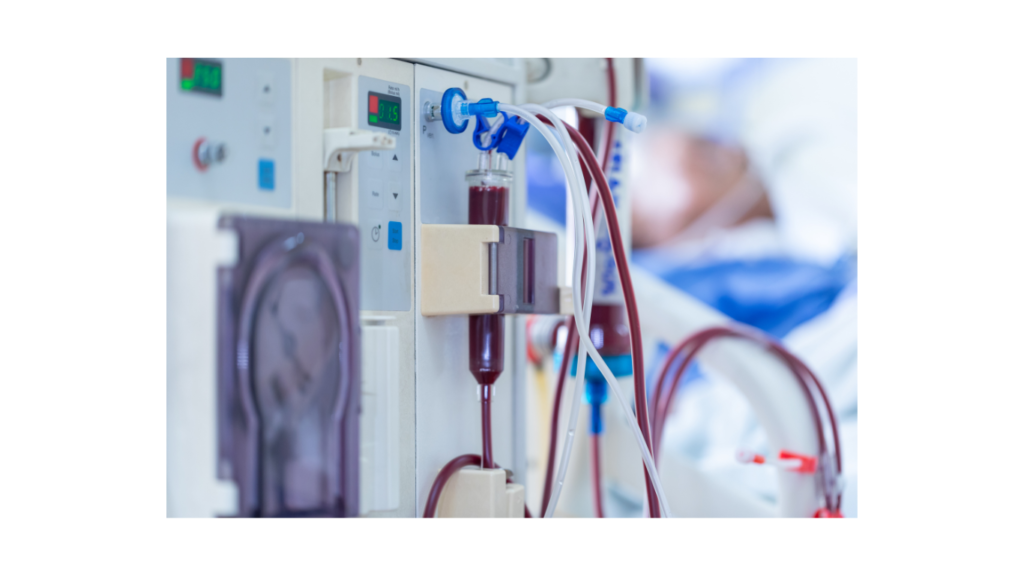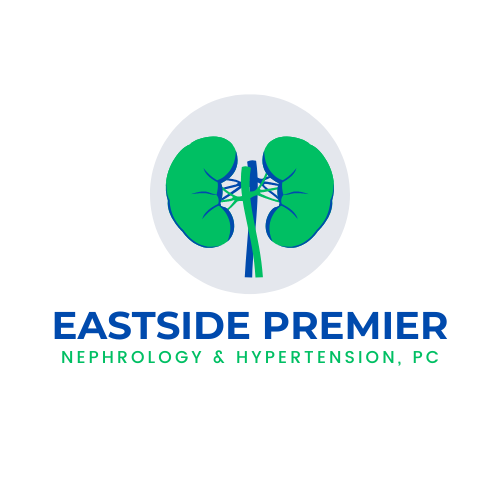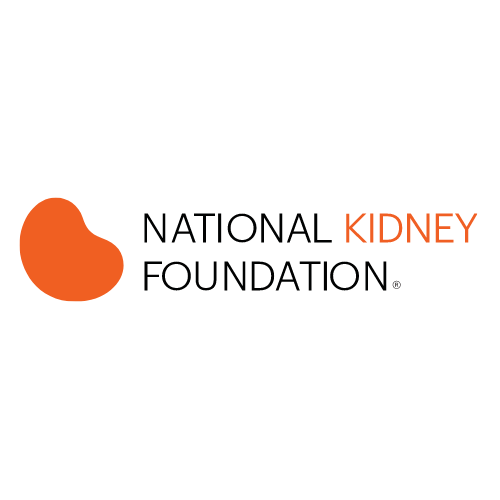
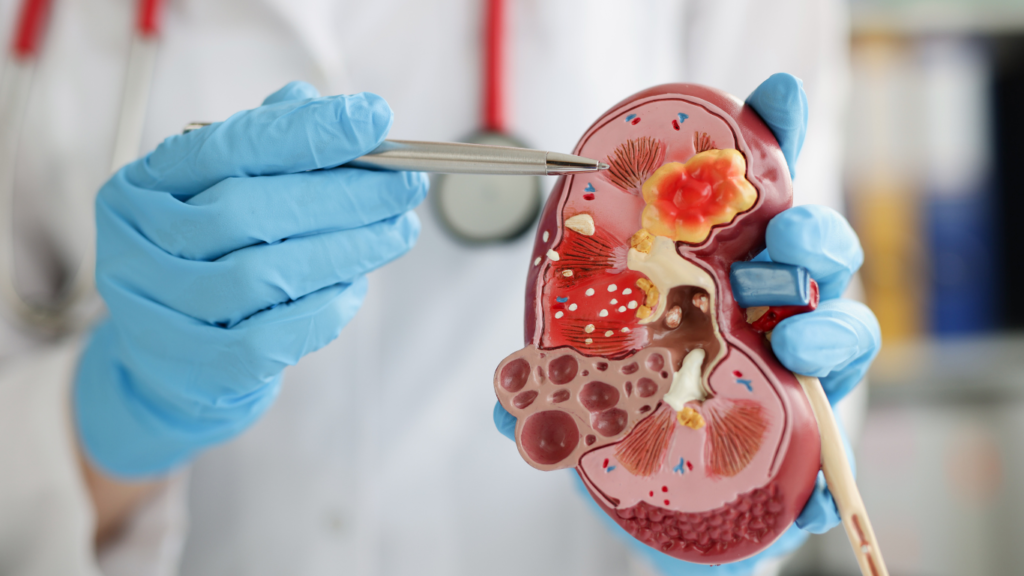
What is Chronic Kidney Disease?
Chronic kidney disease includes conditions that damage your kidneys and decrease their ability to keep you. If kidney disease gets worse, wastes can build to high levels in your blood and make you feel sick. You may develop complications like high blood pressure, anemia (low blood count), weak bones, poor nutritional health and nerve damage. Also, kidney disease increases your risk of having heart and blood vessel disease. These problems may happen slowly over a long period of time. Chronic kidney disease may be caused by diabetes, high blood pressure and other disorders. Early detection and treatment can often keep chronic kidney disease from getting worse. When kidney disease progresses, it may eventually lead to kidney failure, which requires dialysis or a kidney transplant to maintain life.
Credit and Continued reading: About CKD Link
What is Hypertension?
Blood pressure is the force of blood pushing against the walls of your blood vessels as your heart pumps blood around your body. When you have high blood pressure, it means the pressure is too high. High blood pressure is a leading cause of kidney disease, heart attacks, and strokes.
Most people with high blood pressure do not have any symptoms. You can have high blood pressure for years without knowing it. For this reason, it is often called a “silent killer.” The only way to find out if you have high blood pressure is to have it measured.
Credit and Continued reading: What Is Hypertension?

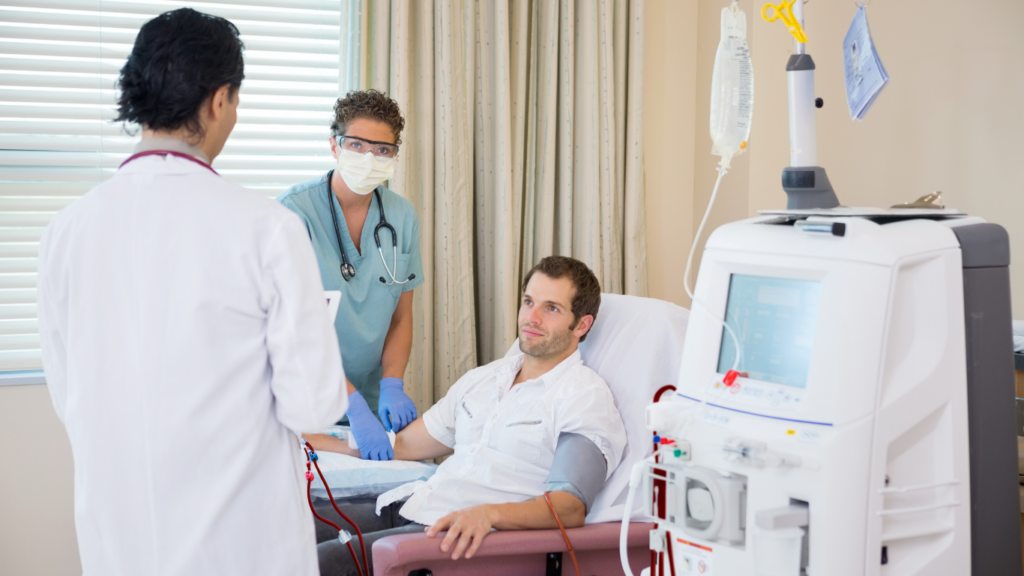
What is Dialysis?
Dialysis is a treatment that does some of the things done by healthy kidneys. It is needed when your own kidneys can no longer take care of your body’s needs. You need dialysis when you develop end stage kidney failure –usually by the time you lose about 85 to 90 percent of your kidney function and have a GFR of <15.
Dialysis can be done in a hospital, in a dialysis unit that is not part of a hospital, or at home. You and your doctor will decide which place is best, based on your medical condition and your wishes.
In hemodialysis, an artificial kidney (hemodialyzer) is used to remove waste and extra chemicals and fluid from your blood.
In this PD dialysis, your blood is cleaned inside your body through the use of a liquid called dialysate in your abdomen.
Credit and Continued reading: What is Dialysis?
What is a Dialysis Access?
A hemodialysis access, or vascular access, is a way to reach the blood for hemodialysis. The access allows blood to travel through soft tubes to the dialysis machine where it is cleaned as it passes through a special filter, called a dialyzer. An access is placed by a minor surgery. As a hemodialysis patient, your access is one of the following:
• A fistula, an access made by joining an artery and vein in your arm.
• A graft, an access made by using a piece of soft tube to join an artery and vein in your arm.
• A catheter, a soft tube that is placed in a large vein, usually in your neck.
Credit and Continued reading: What is a Dialysis Access?
